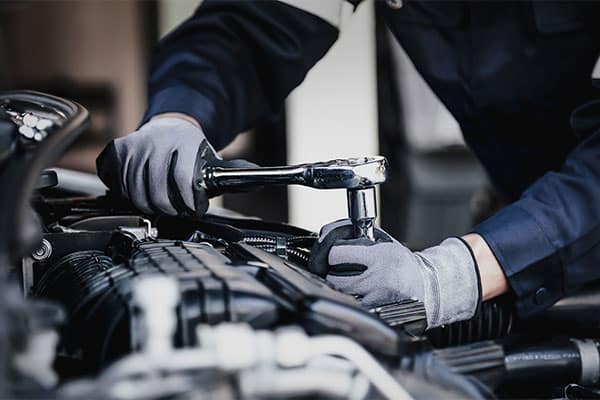All Categories
Featured
Your auto is an essential part of your daily life, and taking good treatment of it ensures that it offers you accurately for many years to find. While modern lorries are designed to be durable, neglecting appropriate maintenance can bring about unneeded breakdowns and expensive repairs. Below's just how you can keep your automobile running longer and in peak condition.
- Abide By Regular Maintenance. The foundation of a resilient car is regular maintenance. Follow your supplier's advised upkeep routine, which can commonly be located in your auto's proprietor's guidebook. Routine tasks like oil modifications, tire turnings, and brake checks prevent damage and maintain your cars and truck carrying out efficiently.
Disregarding oil adjustments is among the quickest means to damage your engine. Tidy oil makes sure proper lubrication and avoids overheating. Relying on your vehicle and driving behaviors, oil changes are typically needed every 3,000 to 5,000 miles or as specified by the maker.
- Inspect and Renew Liquids. Your vehicle counts on a number of fluids to operate efficiently. These include engine oil, transmission liquid, coolant, brake fluid, and power steering fluid. Low or filthy liquids can result in engine overheating, slipping equipments, and brake failure.
Make it a practice to check liquid levels regularly. If you discover a substantial decrease in fluid levels, it may suggest a leak that requires instant interest. Keeping fluids tidy and at the ideal levels ensures your automobile runs effectively and stops expensive fixings.
- Watch on Your Tires. Tire upkeep is critical for both safety and performance. Poorly inflated tires can reduce gas effectiveness, cause unequal wear, and raise the threat of blowouts. Check your tire stress month-to-month and guarantee it matches the producer's recommendations.
Turning your tires every 5,000 to 7,500 miles promotes even wear and prolongs their life-span. In addition, evaluate your tires for any type of signs of damage, such as cuts, bulges, or reduced walk depth, and replace them when needed.
- Change Worn Parts promptly. Neglecting worn-out parts can lead to larger troubles later on. Falling short to change a used timing belt can result in engine failure. Similarly, worn brake pads can harm rotors, leading to expensive fixings.
Be positive concerning replacing components such as stimulate plugs, filters, and belts as per the supplier's guidelines. Using top notch replacement components guarantees far better efficiency and longevity.
- Practice Gentle Driving. The way you drive considerably influences the lifespan of your vehicle. Hostile driving practices, such as fast acceleration, unexpected stopping, and tough cornering, put added stress and anxiety on the engine, brakes, and tires.
Rather, embrace smooth driving strategies. Increase slowly, keep a constant rate, and brake carefully whenever feasible. This lowers deterioration on your automobile's components and enhances gas efficiency.

- Safeguard Your Vehicle's Exterior. Keeping your car clean isn't practically appearances-- it has to do with preventing damage. Dirt, road salt, and crud can cause corrosion and rust, especially in the undercarriage. Regular washing, specifically throughout winter season or after driving on salted roadways, is crucial.
Waxing your cars and truck every couple of months supplies a protective layer against ecological damages. Furthermore, park your automobile in a garage or utilize an automobile cover to secure it from rough climate and UV rays, which can fade the paint and damage the interior.
- Don't Disregard Warning Signs. Control panel caution lights are your cars and truck's means of informing you something requires attention. Whether it's the check engine light, reduced oil pressure, or tire stress warning, attending to these notifies quickly can prevent small issues from ending up being major repairs.
If you observe unusual audios, resonances, or adjustments in your vehicle's efficiency, do not ignore them. A professional auto mechanic can detect and fix the trouble prior to it rises.
- Store Your Vehicle Correctly. If you're not using your automobile for an extensive duration, correct storage is key. Keep your vehicle in a great, dry location to shield it from weather condition damages. Use a battery tender to maintain the battery charge and include a gas stabilizer to stop the gas from degrading.

Starting the car occasionally or taking it for a brief drive can keep all systems in working order and protect against parts from seizing up.
Verdict: Uniformity Is Key. Maintaining your automobile running much longer does not require complex procedures-- just uniformity and attention to information. Routine upkeep, mild driving behaviors, and addressing issues promptly can make all the distinction. Treat your auto with treatment, and it will certainly award you with reliability, much better performance, and years of reliable service. Bear in mind, a well-maintained auto isn't just a lorry-- it's assurance on every trip.
Latest Posts
Unlock Your Financial Partner at WyHy – Low Rates for Members
Enhance Your Building with Overhead Door Systems
Unlock WyHy Federal Credit Union – Key Tools for Your Future